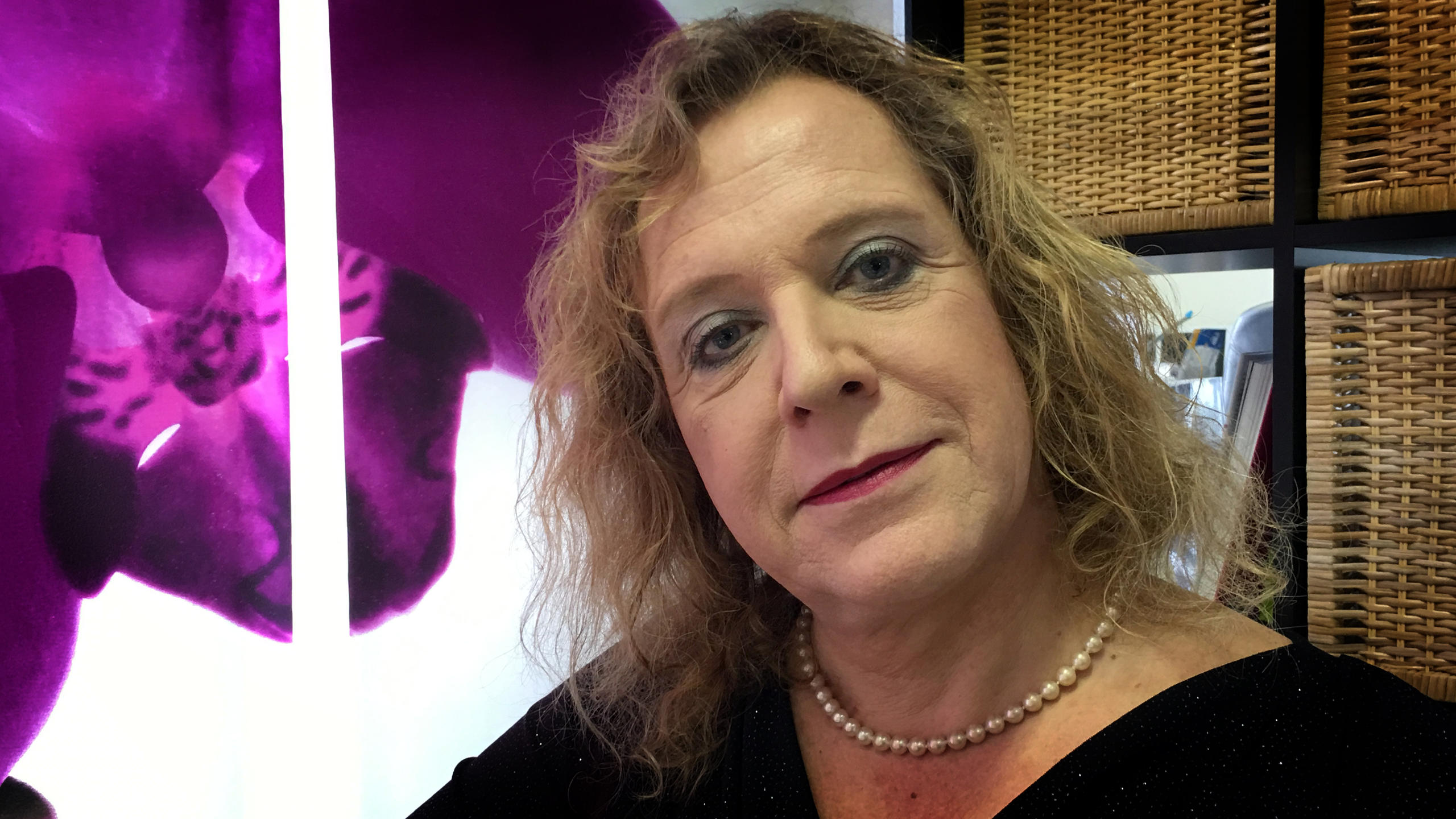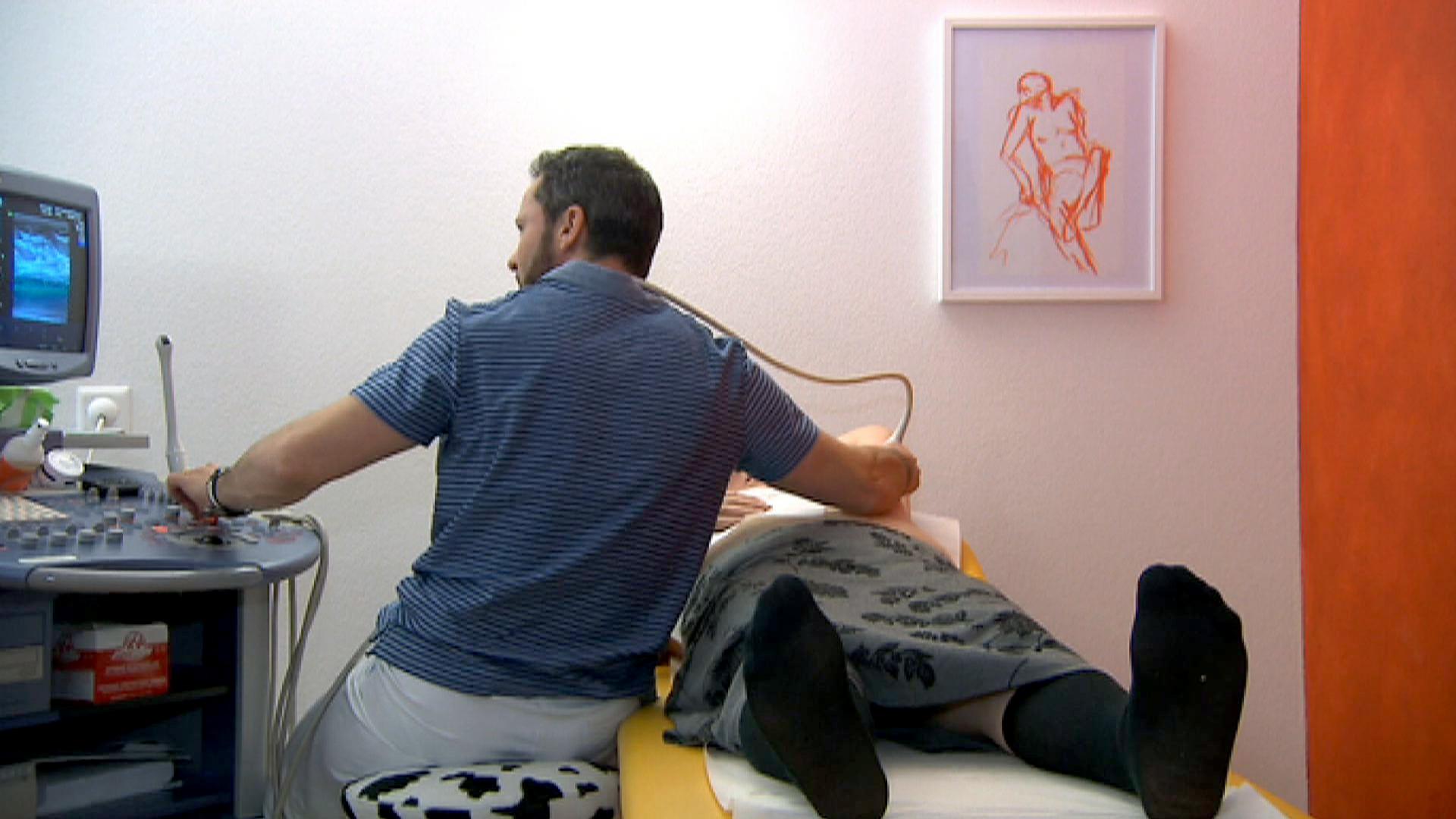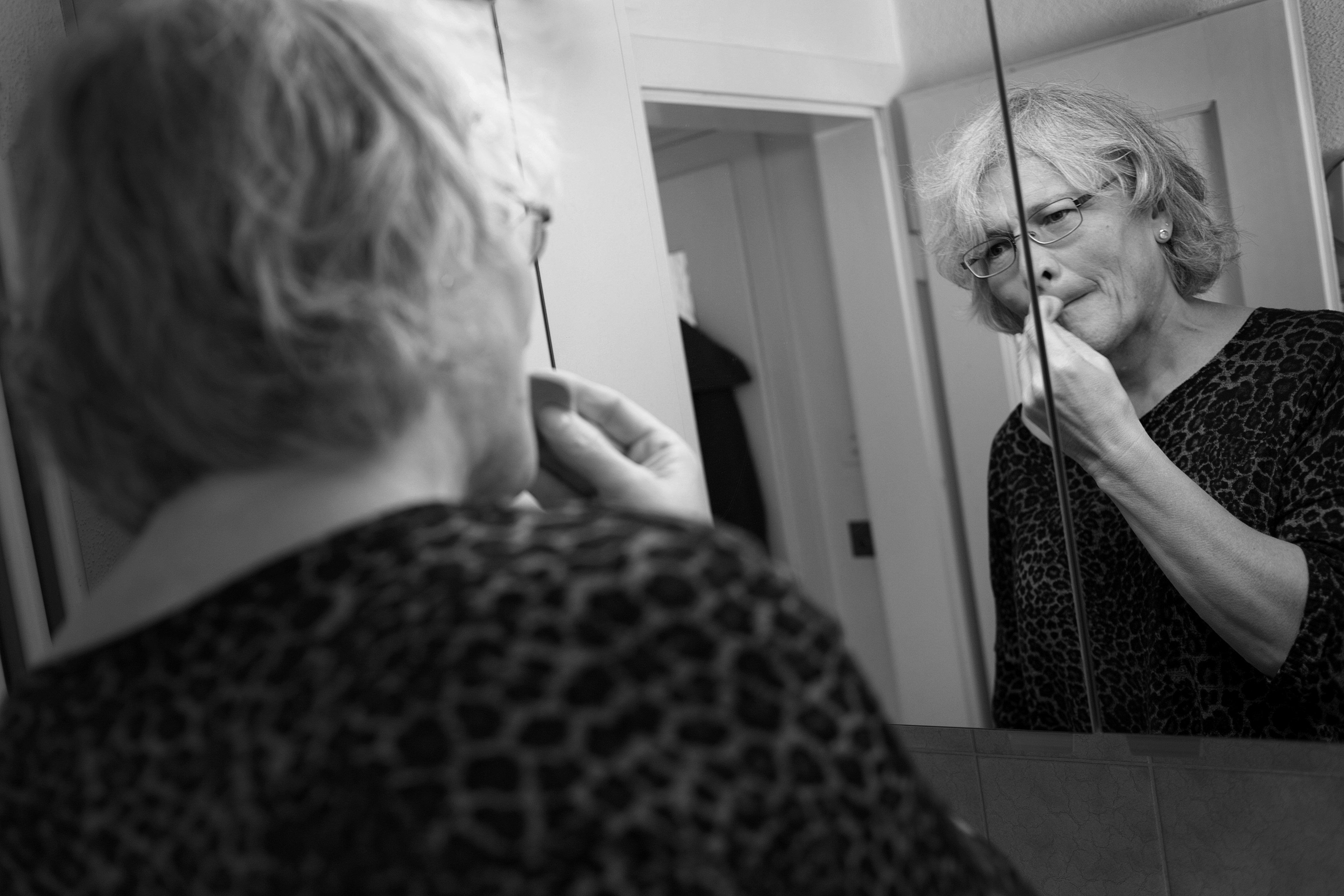Swapping sex to be the real ‘you’

Sharon was about 50 when she knew. There was no moment where it just ‘clicked’, but she started to become aware that what she felt “had something to do with transgenderism”. Ten years on, she’s helping others going through a sex change do so without losing their job and livelihood at the same time.
“I started in the way that most cross dressers do: hidden. In secret. Embarrassed about the situation but unable to do anything to stop it,” Sharon Zielasek told me, re-adjusting her silk neck scarf as we sat and talked in her shop in canton Zurich.
“It turned out I was one of those 10%.”
Tweet this!External link
She tried cross dressing at first at home, but eventually found herself unable to go back to the male role anymore.
“I felt it would probably be easier for the family to [continue to] switch and to be the husband to my wife, and the father to my children.”
“Most transgender people find their balance in this situation as a cross dresser, but around 10% of these people become aware that they were obviously born in the wrong body. It turned out I was one of those 10%.”
And so began the gradual process of becoming a woman. Between the hormones and the surgery, there are a lot of changes going on, which takes a number of years. But she believes it was worth it.
Listen to her describe how she felt in the audio clip below.

More
How it feels to come out as transgender
Switzerland, like 24 other states in Europe, requires people to be sterilised before they can change their legal gender, according to the 2016 Trans Rights Index EuropeExternal link. Only a minority of European countries require no compulsory medical intervention at all for someone to have their gender change legally recognised.
Sharon has two grown up children, and is still with her wife. It was difficult to decide to tell her family. “No one expects that….it was a shock. It took a pretty long time for my family to be able to live with this,” Sharon says.
“It took a pretty long time for my family to be able to live with this.”
She describes the different phases they went through; at first not understanding what it means to be transgender. After they came to understand it, the next phase is tolerance. “Acceptance is a step ahead and is almost impossible I think, especially for the spouse to accept that the man she married is now a woman,” says Sharon.
She decided early on to get help from a psychologist who had experience with transgender issues. “If we hadn’t found her, probably the family would have broken.” Members of the family went for sessions on their own or together over the course of two years.
Overall, Sharon is happy that her family were able to “tolerate” her new way of living. They’re all still under one roof in the family home, and their friends have been very accepting.
The transgender emporium
Hidden away inside an unremarkable building on an industrial estate on the outskirts of canton Zurich is Switzerland’s only transgender shop.
Sharon was working as a consultant before she came out, and one of her last clients was a company looking to sell products to transgender people in Switzerland. She discovered there was a market for it, and fittingly decided to become the person running the business.
To watch this 360° video: click and drag the screen to choose what you want to see (open video in YouTube app for mobile phones).
The Transgender Network Switzerland, which Sharon now runs projects for, estimates there are around 6-7,000 publicly transgender people in Switzerland, and far more who haven’t come out.
Part of the work Sharon has done for the network was a large-scale survey of 30 companies and around 200 trans people in Switzerland.
16% of employers in the survey said they were afraid to hire transgender people as they thought customers or clients would react badly, or that they wouldn’t fit in with the company culture.
From the survey, Sharon found out that trans people who lost their jobs were then in general unemployed on average for around 20 months.
According to the Trans rights organisation Transgender EuropeExternal link, Switzerland is with the majority of European states who have legal protection against trans-discrimination when it comes to employment. But even if an employer accepts the person’s new gender identity, the reality is they can end up feeling alone at work, as other colleagues stay away for fear of saying or doing the wrong thing.
Often the part where the transgender person tells their colleagues doesn’t go very well.

More
Coming out at work
The Transgender Network is now trying to educate companies and the national unemployment agency so people are either aware of how to handle someone coming out at work, or know how to deal with specific problems, such as having different names on their CV and their qualifications, to get them back into the workplace.
Have you come out as transgender or has someone in your workplace? Did the company handle it well?
We would love to hear from you. You can contact the author of this article on twitter @jofahyExternal link or on FacebookExternal link, or get in touch in the comments below.

In compliance with the JTI standards
More: SWI swissinfo.ch certified by the Journalism Trust Initiative



You can find an overview of ongoing debates with our journalists here. Please join us!
If you want to start a conversation about a topic raised in this article or want to report factual errors, email us at english@swissinfo.ch.